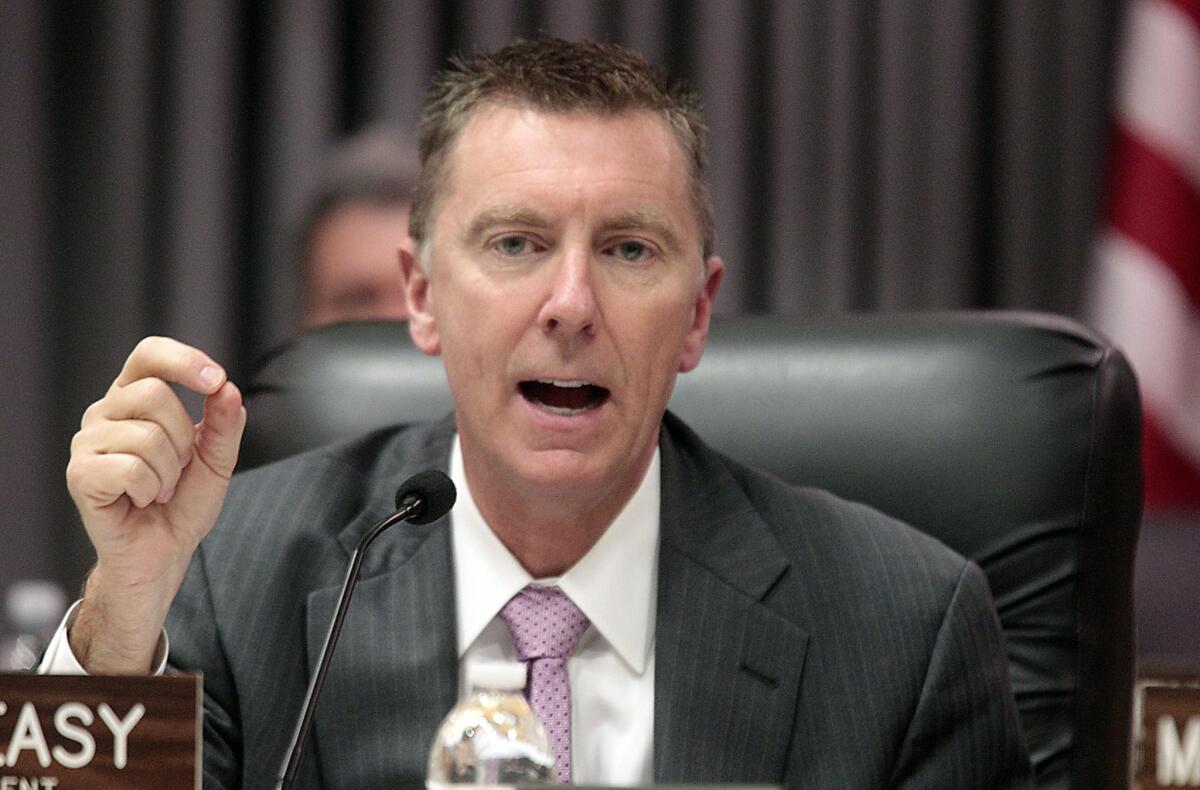Few L.A. teachers get bad ratings, trial documents show

- Share via
More instructors than ever are being evaluated in detail in the Los Angeles Unified School District and only a small percentage are being rated as substandard, according to testimony Wednesday in litigation aimed at reducing teacher job protections.
The results of a new evaluation system became a major topic in the Los Angeles Superior Court trial, which pits the state and teachers unions against a group of families allied with advocates and donors seeking to reshape state education law.
Last year, L.A. Unified carried out its new evaluation system with 10,843 instructors, about 42% of the classroom workforce. Of these, 2.8% received an overall rating of “below standard.” It was unclear how many were considered bad enough to warrant dismissal.
The teachers were rated in five broad categories: support for student learning; planning and designing instruction; classroom performance; developing as a professional educator; and punctuality, attendance and record-keeping. About one in five teachers needed to improve in one or more of the categories.
These results were brought forward during the third day of testimony by L.A. schools Supt. John Deasy, who supports efforts to overturn state laws on how teachers are dismissed, laid off and granted tenure.
The group bringing the suit, Students Matter, contends that these laws are unconstitutional because they result in greater numbers of ineffective teachers, which disproportionately harms poor and minority students. Students Matter is funded substantially by tech executive David Welch.
The data on evaluations were entered into evidence by the state of California, which is defending existing laws along with the California Teachers Assn. and the California Federation of Teachers. Their point was that Deasy and L.A. Unified have been able to address teacher quality; therefore, there’s no legal justification for overturning the challenged laws.
On Tuesday, they had noted that L.A. Unified has fired increasing numbers of teachers, forced many others to resign and denied tenure far more frequently. The issue, attorneys said, is how well a California school district manages its teacher force, not the laws under which it must operate.
But Deasy insisted that the contested laws affect the overall quality of teachers despite his best efforts. And dealing with “grossly ineffective” instructors consumes far too much time and money. In this rebuttal, attorney Marcellus McRae invited Deasy to note that the local teachers union has opposed his efforts to improve teacher performance under the current rules.
Deasy testified that when fewer teachers received tenure, the union staged “rallies about being on a witch hunt” and, in general, resisted his efforts “at every turn.”
Twitter: @howardblume
More to Read
Sign up for Essential California
The most important California stories and recommendations in your inbox every morning.
You may occasionally receive promotional content from the Los Angeles Times.











